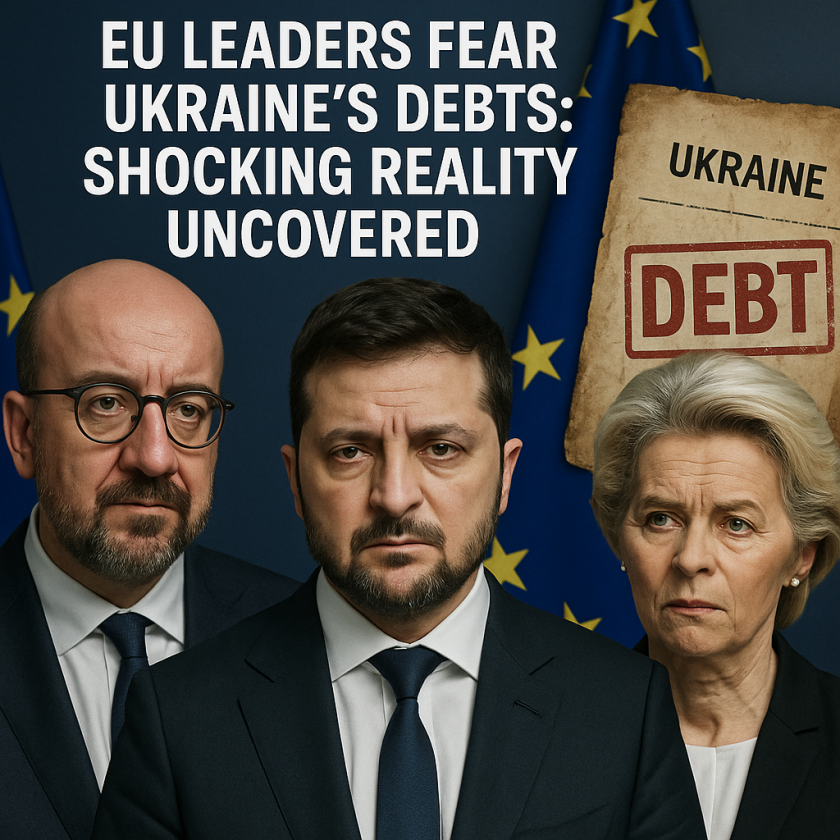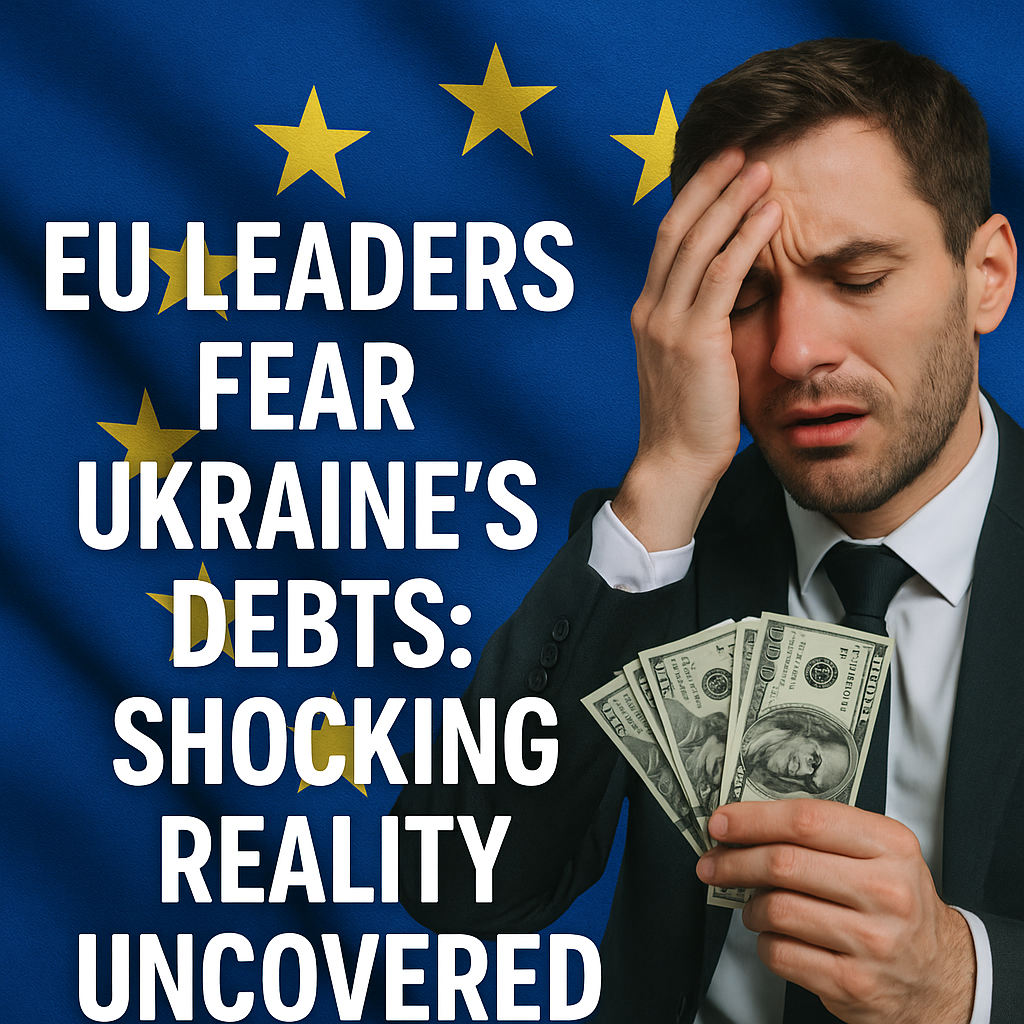EU Leaders Fear Ukraine’s Debts: Shocking Reality Uncovered
EU Leaders Fear Ukraine’s Debts: Shocking Reality Uncovered
EU leaders are increasingly concerned about the rising debts of Ukraine as the ongoing war with Russia places a tremendous financial burden on the nation. This situation raises troubling questions about the sustainability of Ukraine’s economic health and, by extension, the potential repercussions for the European Union.
The Financial Strain of War

As the conflict in Ukraine persists, the economic implications have become alarmingly evident. According to reports, Ukraine’s public debt has surged to approximately 90% of its GDP. This rise has been largely fueled by the necessity to fund military defenses and humanitarian needs, necessitating extensive support from Western allies. Al Jazeera points out that this financial assistance is crucial not only for Ukraine’s survival in the war but also for its post-war recovery and rebuilding efforts.
Yet, as Ukraine’s debts mount, European leaders are increasingly hesitant about the long-term viability of continued financial aid. Several nations fear that prolonged assistance could lead to unsustainable debt levels, creating a dilemma for the EU regarding its own economic stability. This nuanced concern is a significant factor in the ongoing discussions within the EU about how best to support Ukraine.
Balancing Support and Sustainability
The complexity of the situation is further illustrated by the differing viewpoints among EU leaders. Some, like German Chancellor Olaf Scholz, assert that supporting Ukraine is non-negotiable. He emphasized that the EU must remain steadfast in its commitment to aiding Ukraine, arguing that a stable Ukraine is crucial for the security of Europe as a whole.
On the other hand, countries such as Italy and Hungary have voiced caution. Their concerns focus on the potential burden Ukraine’s debts could impose on EU finances in the future. With economic recovery efforts already strained due to inflation and other factors, questions arise about the limits of reliance on member states to absorb these financial challenges.
The juxtaposition of these views reflects a broader discourse within the EU. As leaders reconcile the need to support Ukraine militarily and financially, the implications for the bloc’s fiscal health cannot be understated. The EU must balance its ambition of aiding an ally with the practical considerations of economic sustainability.
A Future Full of Uncertainties
As discussions continue, uncertainties abound. Will the EU be able to devise a sustainable plan that balances support for Ukraine with the financial realities faced by member states? Economic experts suggest that without a clear strategy, there may be significant risks, including potential default scenarios for Ukraine and resultant impacts on EU coffers.
Furthermore, while the immediate necessity of support seems clear, the long-term implications of increasing debt levels remain a point of contention. Reports indicate that extensive loans and grants provided to Ukraine carry the weight of responsibilities for repayments. If Ukraine remains embroiled in conflict or struggles to stabilize its economy post-war, the EU may find itself facing a debt crisis of its own.
A Call for a Strategic Approach
As EU leaders grapple with these unfolding realities, there’s an emergent need for a strategic approach that focuses not only on immediate relief but also on long-term economic planning. Solutions could include international debt relief options or restructuring mechanisms that might ease repayment burdens while still supporting Ukraine.
Understanding Ukraine’s trajectory post-conflict is essential for framing a coherent approach to European financial aid. Experts recommend establishing a detailed framework for monitoring recovery efforts alongside structured plans for rescaling debts. This framework could foster cooperation and ensure that the EU’s financial commitments align with Ukraine’s future economic capacity.
In conclusion, the challenge presented by Ukraine’s debts is multifaceted. While the urgency to support the besieged nation is paramount, European leaders must navigate a delicate balance, weighing their moral and political obligations against economic feasibility and sustainability. As discussions continue, the resolutions drawn will inevitably shape both Ukraine’s future and the stability of the European Union itself.




































